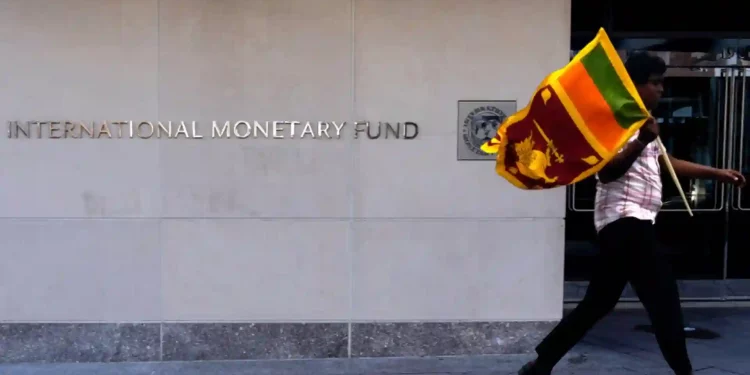IMF’s bailout would pave the way for Sri Lanka to restructure its economy, provide relief from the debts, and assist in overall economic improvement by 2024
Sri Lanka secures a $3 billion bailout from the International Monetary Fund (IMF) after a year of what could be said as the worst economic crisis since the country’s independence. The debt-driven economy was shattered for the past year the deal provides a lifeline to the billions of people of the country from the brink of ruins. IMF’s bailout would pave the way for Sri Lanka to restructure its economy, provide relief from the debts, and assist in overall economic improvement by 2024.
The International Monetary Fund’s decision would provide the country with an immediate distribution of a $333 million credit for over four years. Ali Sabry, Foreign Minister stated that the government will raise funds by privatizing the national airline and restructuring the state-owned enterprises, reports BBC. Experts, on the other hand, warn Sri Lanka that the nation will still face difficulties in terms of managing the economy. IMF Asia and Pacific director, Krishnan Srinivasan stated that Sri Lanka had been hit by a catastrophic economic and humanitarian crisis.
A brief look into Sri Lankan Crisis
The political crisis in Sri Lanka devoured the economy and had people struggling with shortages of food, fuel, and medicines. Inflation soared up more than 50% along with extreme fuel shortages. The country didn’t have enough fuel for essential services like public transportation, and the country had little or no foreign currency left to import more causing the diesel and petrol prices to drastically increase.
It got worse to a point that the government had to restrict the selling of fuel only to essential vehicles. The foreign debt of the country began to pile up and it didn’t have enough to pay back. This inability to pay back debt caused the country’s reputation with investors which made it even harder to borrow.
After the announcement of the IMF bailout, Wickremasinghe stated that the country is committed to reform agendas and IMF’s help is aiding to achieve the nation’s goals.
The IMF program is critical to achieving this vision, and we are committed to successfully completing it to achieve debt sustainability. I encourage our bilateral and commercial creditors to strengthen and foster coordination in the context of forthcoming engagement.
— Ranil Wickremesinghe (@RW_UNP) March 21, 2023
Krishna Srinivasan also stated that the main aim of the IMF loan is to deal with macroeconomic stabilization and rebuild debt sustainability in the short term. “But going beyond that, the program also aims to mitigate the impact of the crisis on the poor and vulnerable,” added Srinivasan
Sri Lanka earlier this year, had to take up some drastic measures to bring the economy under control. The country increased taxes for essential items including food and fuel and also introduced income taxes for professionals in a range of 12.5% to more than 36%.
S&P Global Ratings Agency analyst Andrew Wood stated that Sri Lanka has a long way to go to have a consolidated government balance sheet, external stability, and consistent economic growth. “We expect the economy to contract again in 2023, albeit at a more modest pace, before returning to growth in 2024,” stated Andrew Wood. IMF recently announced that Sri Lanka had gained financing promises from China and India which is also a major reason for this bailout.
Including the present one, this will be the 17th time that Sri Lanka has approached the IMF for a bailout. Experts add that this is a different crisis from the previous ones and the primary objective now is to restore debt sustainability.


















